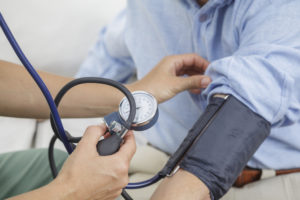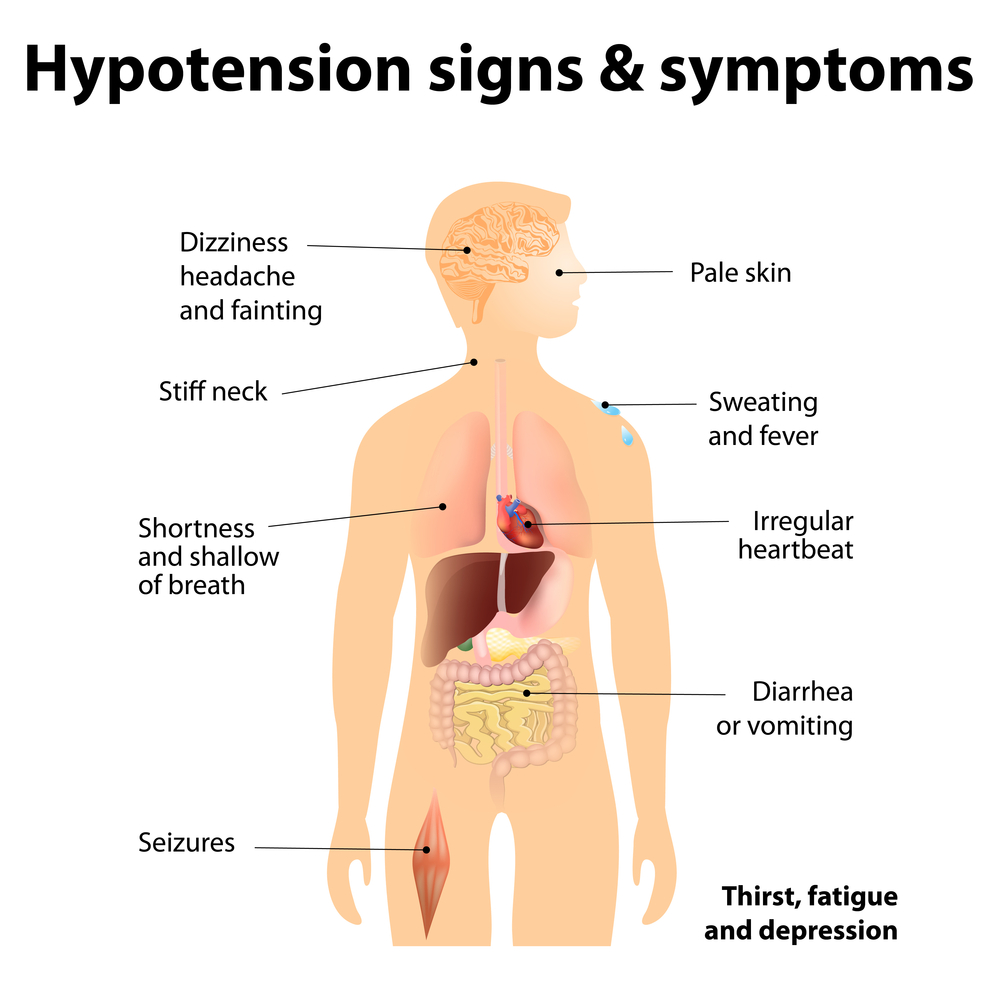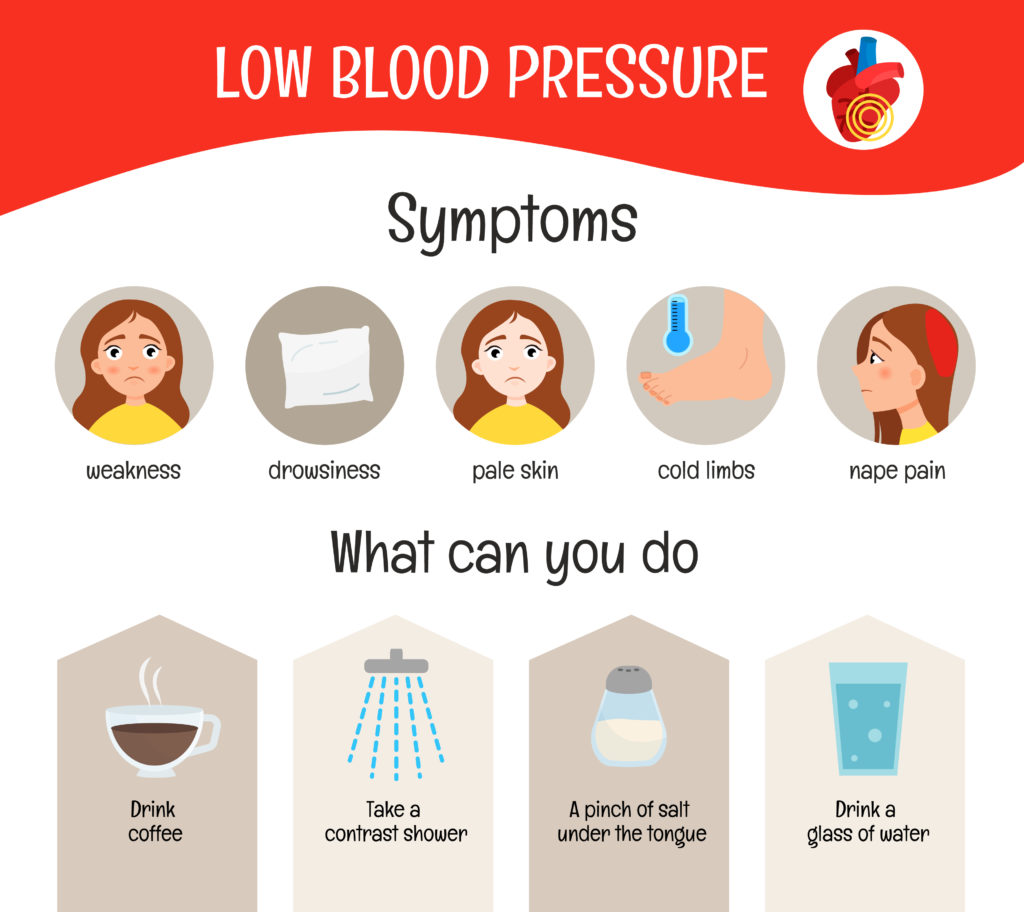What's On This Page?
ToggleWhen I was a practicing pharmacist at a national retail chain drugstore, I’d often get this type of phone call:
What do I do, my husband took his blood pressure pill and now he feels faint! Is that normal?
Probably every pharmacist has received a similar call after dispensing any one of the popular anti-hypertensives like losartan, lisinopril, nifedipine, atenolol, and others.
The answer given depended on the severity of the situation of course, and we were always mindful of having the patient’s doctor informed and notified. A person often experiences low blood pressure because they have high blood pressure and they’re taking a blood pressure drug or two in order to reduce it. But the problem is that it can go down too fast, and too much!
Hence, a hypotensive crisis can occur if you take a blood pressure pill, or a combination of drugs. It’s very common. If you take anti-hypertensives, please read one of my other articles, Side Effect Solutions to Blood Pressure Drugs.
Kidney dysfunction, heart disease, sleep apnea as well as thyroid disease are other causes for a hypotensive crisis.
By thyroid disease, I specifically mean hyperthyroidism, not hypo. So conditions like Hashimoto’s or Graves’ disease can sometimes (and it’s not super common) lead to a hypotensive event. Hyperthyroidism causes periodic increases heart rate and cardiac output, which usually causes a propensity for higher blood pressure. However, it can ultimately lead to heart failure or atrial fibrillation (AFIB), so in this regard I’d say it could cause a hypotensive crisis.
Hypothyroidism, due to its association with reduced metabolic rate and decreased cardiac output, could theoretically contribute to a hypotensive crisis. It’s also rare, and maybe you’d only see this in severe untreated cases or myxedema coma, where profound hypothyroidism leads to significant reductions in heart rate and vascular volume, potentially resulting in dramatic low blood pressure! Either way, it’s a trip to the Emergency Room!
Let’s Keep it Simple with B12 Deficiency
Vitamin B12 deficiency is common and known to cause pernicious anemia, as well as low blood pressure. This is an overlooked but common cause of chronic low BP. Diabetes is yet another overlooked cause for bouts of hypotension, at least initially. Later on, it will cause hypertension.
Autonomic failure is also something that I’m not able to advise on, but I can tell you that some of the tips below might be useful in a situation, as you see a trained medical doctor for ultimate relief of that condition.
Small Fiber Neuropathy will cause people to experience a sharp drop in blood pressure upon standing, and sadly most people who have SFN don’t even know it. It’s not exactly the same as regular “neuropathy” or “diabetic neuropathy,” it’s different, and treated accordingly. It’s getting more and more common, especially with the pandemic we’ve been experiencing.. CLICK HERE to read my article about Small Fiber Neuropathy Causes and Treatment.
Drop attacks are different than garden-variety hypotension, even though they both have similarities, and often involve a sudden, rapid drop in blood pressure.
A “drop attack” is the medical term for an episode where a person suddenly falls (or feels like he’s going to fall down) to the ground, but they are still fully conscious. In other words, there is no blackout of loss of consciousness. Within minutes you can often get up and regain composure, and you will remember the whole thing, unlike a blackout.
A drop attack can occur at any moment, like if you’re just walking around, or sitting still, it’s a sensation, it comes without warning. Many people who do fall can injure a bone or hip. The ‘drop attack’ problem can be chronic, and is neurologically-based typical of a seizure disorder, or neuronal misfire, and also a vagus nerve problem as opposed to hypotension which is a cardiovascular problem.
There are many causes of drop attacks, such atonic seizures, low blood pressure and other types of epilepsy, but quite often the neurological symptom is due to undiagnosed (mild) autoimmune encephalitis. The 10 options I list below will not be of use to a drop attack situation because that is brain-based, and what I’m suggesting is for the vascular system.
Symptoms of Hypotension
The symptoms are the sensation of dizziness or feeling faint and lightheaded. Your limbs (hands and feet) may feel cold as your body tries to redirect the blood back to the core. There could also be nausea, weakness and poor concentration. Blurry vision will occur too. Neck pain is an interesting one because you may have a stiff feeling neck if you have low blood pressure, but oddly, neck pain is associated with high blood pressure too, such as malignant hypertension.
So if you have nape or neck pain, it may be a clue. If you have severe symptoms of course, you must call 9-1-1, and get proper help. Smelling salts aren’t a bad idea to try while you’re waiting for help if someone is there to offer that to you and you faint!
For a simple bout of garden-variety sudden low blood pressure, I have the following 10 tips:

1. Lie down and elevate your feet. You can easily do this by placing a thick pillow under your legs, or propping your legs on the chair while you lay on the floor. The point is to position yourself so your head gets more blood flow because in the current crisis, your brain is starving for blood and oxygen.
That’s the reason you feel faint – because the blood left your head, so this positional change is number one on the list.
2. Munch on something very salty. Eat some potato chips, or drink salt water if you can sit up. It’s made as 1/2 cup water and 1/2 teaspoon sea salt, and stir it well. Another faster, easy trick is to put a pinch of salt under your tongue. Salt is an interesting topic that has mass appeal. Read my other article, Choosing Salt with One of These Colors Improves Health.
3. Generally speaking drink more water. The more fluid you drink the more pressure there is inside your blood vessels and that’s the goal – to raise the pressure since it is low. If you have electrolytes at home, that’s ideal to add to your water.
4. Put on compression knee-high socks are great if you have those. You should buy a pair of compression hose if you are on a blood pressure drug because you never know when you’ll experience this problem. It often happens when the dosage is raised, or if you become dehydrated, or if you take a medication that alters the clearance of your blood pressure pill.
5. Fludrocortisone is a prescription medication that raises blood pressure. It works by controlling the sodium and the fluid balance in your body. More specifically, it causes your kidneys to hold onto the sodium, rather than excrete it via urine. So this medication is something that a doctor can prescribe and you can keep it on hand for a potential hypotensive crisis.
6. Do not get up fast! I cannot emphasizech this enough. Even if you have been on a medication for years, and you feel confident of its effects, still I caution to never get up fast. Sit up from your chair for a minute and then get up, especially at night if you’re asleep (but you wake up to go to the bathroom).
Postural hypotension has caused many people to fall down and break something like a hip! It doesn’t mean that your medication dose is too high, nor does it mean that the drug is wrong for you. It’s just a normal side effect of taking antihypertensive medications (or herbal supplements). It’s just how your body works.

7. Smelling salts may be useful in a fainting situation. It’s just for an emergency to rouse someone. These age-old smelling salts work because they contain ammonia which ‘wakes up’ the nervous system.
People prone to fainting from low blood pressure sometimes have these in their purse or in their desk. Athletes use them too. To be clear, this treats fainting, not hypotension and you will need to still raise blood pressure with medical assistance.
8. Licorice tea can be used because that will elevate blood pressure too. If someone is around to help you steep this while you lay down with your legs up, it would be ideal! These tea bags are sold everywhere. They are used most often for liver disease, and more recently for respiratory infections. You can buy them everywhere, but again, keep in mind they can cause hypertension.
This little side effect makes them perfect for the problem discussed today, sudden drops in blood pressure. You may like my other article about this herb, Licorice Helps Chronic Fatigue and Heartburn.
9. Avoid steam rooms and hot showers. A hot, steamy shower because this will cause the blood to leave your head and go to your skin. When the blood leaves your core, you feel like you want to pass out!
So if you’re prone to hypotensive crises, avoid a long hot shower and stay away from saunas and steam rooms at the gym. Now, if you haven’t yet surmised, a quick cold shower could be useful if you’re able to do it. It should raise your blood pressure pretty quickly.
10. Diffuse rosemary essential oil – why not? Preliminary research suggests rosemary can increase blood pressure to some degree. Take a whiff real quick, dab some on your neck, or put a few drops in some water and diffuse it in your home diffuser.
For further reading, check out this article on Webmd-Understanding Low Blood Pressure- The Basics
Always make sure that you get a great blood pressure monitor. Read reviews! It is worth it.

Suzy Cohen, has been a licensed pharmacist for over 30 years and believes the best approach to chronic illness is a combination of natural medicine and conventional. She founded her own dietary supplement company specializing in custom-formulas, some of which have patents. With a special focus on functional medicine, thyroid health and drug nutrient depletion, Suzy is the author of several related books including Thyroid Healthy, Drug Muggers, Diabetes Without Drugs, and a nationally syndicated column.
